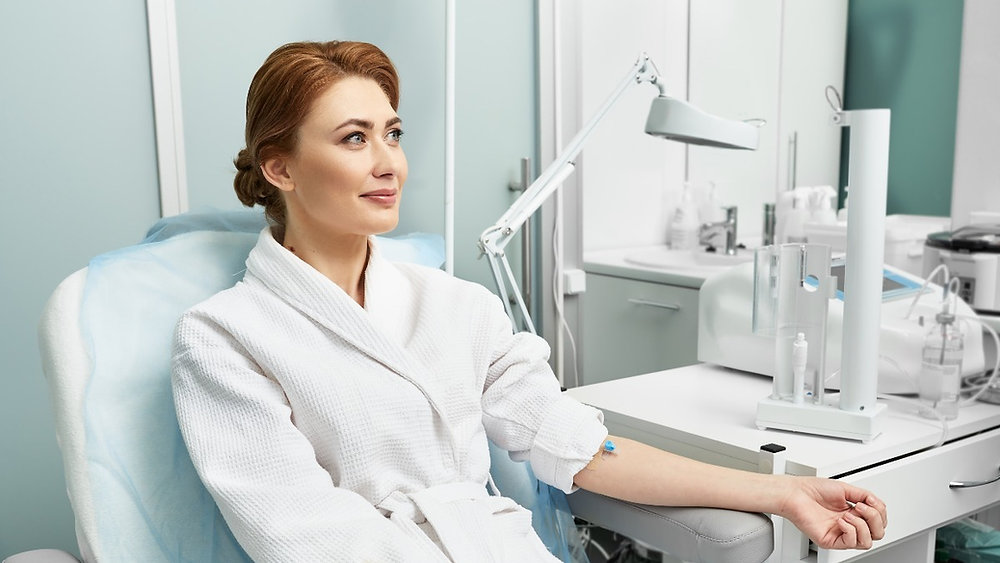Sleep is a critical component of overall health, affecting physical, mental, and emotional well-being. Millions of people worldwide struggle with sleep disorders, ranging from insomnia and sleep apnea to restless leg syndrome and circadian rhythm disruptions. These disorders not only reduce sleep quality but also disrupt daily functioning, causing fatigue, irritability, and even chronic health conditions. In Dubai, a growing interest in holistic and non-invasive treatments has paved the way for innovative therapies. One such promising approach is Ozone Therapy for Sleep Disorders in Dubai. This therapy is gaining traction for its potential to regulate sleep patterns and reduce nighttime awakenings.
What Is Ozone Therapy?
Ozone therapy involves the administration of medical-grade ozone, a molecule composed of three oxygen atoms, to improve the body’s oxygenation and cellular function. It is used in a range of treatments due to its antibacterial, antiviral, and anti-inflammatory properties.
The Link Between Ozone Therapy and Sleep Regulation
Sleep disorders often arise from systemic inflammation, oxidative stress, or compromised cellular energy production. Ozone therapy targets these root causes by increasing oxygen availability, modulating the immune response, and promoting detoxification.
How Ozone Therapy Affects Night Awakenings
Frequent night awakenings can be a symptom of disrupted oxygen flow, stress, or underlying inflammation. Ozone therapy may ease these issues through its systemic effects. When administered correctly, ozone improves circulation, supports neurochemical balance, and enhances oxygen delivery to the brain—all crucial elements for uninterrupted sleep.
Common Causes of Night Awakenings and How Ozone Therapy May Help
| Cause of Night Awakenings | How Ozone Therapy May Help |
|---|---|
| Low oxygen levels | Enhances oxygenation and improves circulation |
| High inflammation levels | Reduces systemic inflammation |
| Poor detoxification | Supports liver and kidney detox pathways |
| Hormonal imbalances | Promotes hormonal regulation |
| Anxiety and stress | Modulates stress response and calms the mind |
Clinical Evidence and Global Use
Ozone therapy has been used globally in various clinical settings to support chronic fatigue, fibromyalgia, and neurological disorders. While specific large-scale studies on ozone therapy for sleep disorders are still emerging, preliminary findings and anecdotal reports highlight its effectiveness.
Comparison Between Ozone Therapy and Traditional Sleep Aids
| Criteria | Ozone Therapy | Traditional Sleep Aids |
|---|---|---|
| Dependency Risk | Low | Moderate to High |
| Long-Term Benefits | Possible improvement of the root cause | Symptom management only |
| Side Effects | Minimal when administered properly | Grogginess, dependency, others |
| Frequency of Use | Periodic sessions | Often daily |
| Natural Regulation | Supports the body’s systems | Overrides natural sleep cycles |
FAQ’s:
What types of sleep disorders may benefit from ozone therapy?
Conditions such as insomnia, sleep apnea (non-obstructive), restless leg syndrome, and chronic fatigue-related sleep disruptions may potentially benefit from ozone therapy.
How soon can I expect results from ozone therapy?
Some patients report improved sleep within a few sessions, while others may take several weeks. The response time varies based on the severity and root cause of the disorder.
Is ozone therapy safe for long-term use?
When conducted under professional supervision and proper protocols, ozone therapy is considered safe. However, ongoing treatment plans should be reviewed regularly.
Can ozone therapy replace sleeping pills?
Ozone therapy may reduce reliance on sleep aids by addressing underlying issues, but it’s essential to consult a healthcare provider before making any changes to medication.
Does ozone therapy require any downtime?
Most ozone therapy sessions are brief and do not require any downtime. Patients can typically resume normal activities immediately after the session.
Final Thoughts:
Ozone therapy shows promise in easing night awakenings and improving overall sleep quality by addressing underlying physiological issues. While more research is needed to fully understand its role in sleep regulation, its holistic approach is appealing to those seeking natural, non-invasive alternatives.

